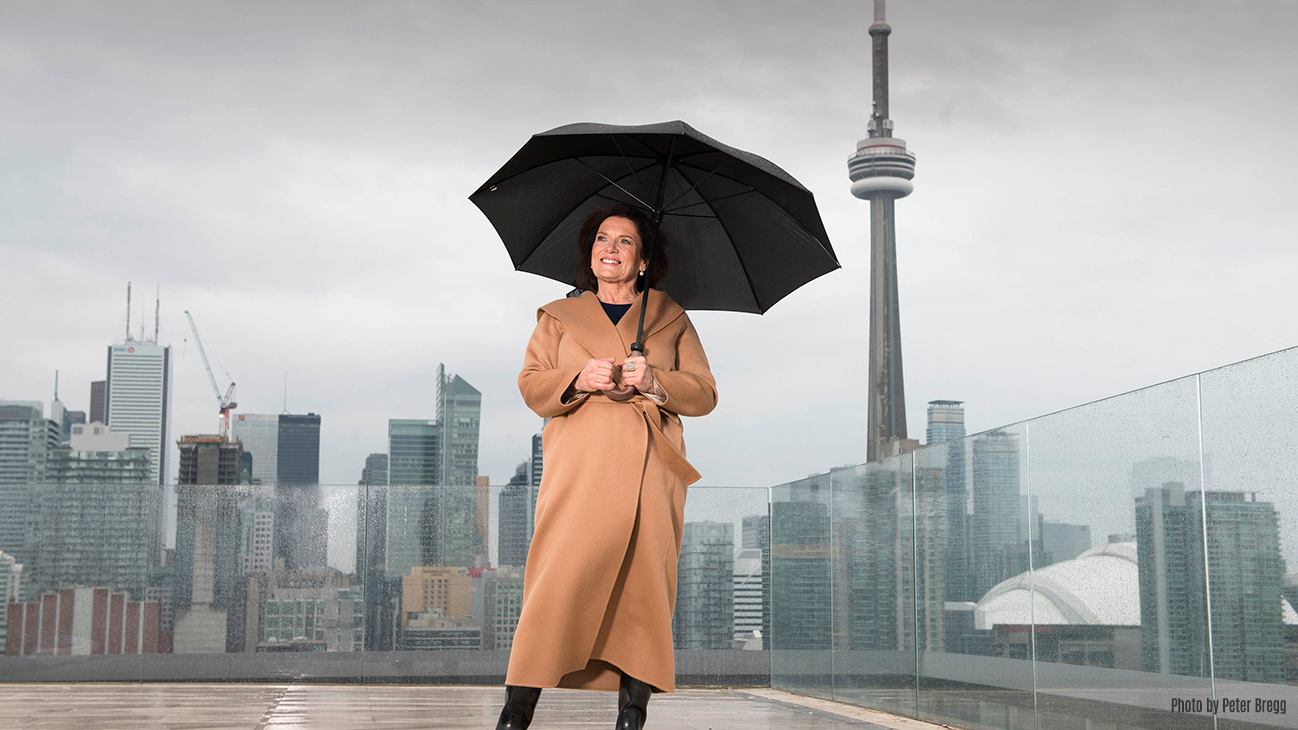Margaret Trudeau is a Canadian icon, celebrated both for her role in the public eye and as a respected mental-health issues advocate. From becoming a prime minister’s wife at a young age, to the loss of both her son and her former husband, to living with bi-polar disorder, Margaret tirelessly shares her personal stories to remind others of the importance of nurturing the body, mind, and spirit. The National Post attended Margaret’s recent talk for Stigma Enigma — you can see the video here:
Margaret Trudeau “lived in a private hell” for years before being diagnosed with bipolar disorder.
Trudeau, the ex-wife of former prime minister Pierre Trudeau and mother of Prime Minister Justin Trudeau, spoke at the Mingle for Mental Health to a sold-out crowd at the Caboto Club on Saturday night. The event, organized by Stigma Enigma, was a fundraiser for Maryvale Adolescent and Family Services.
“Seventeen years ago I completely lost my mind,” she said. “I no longer had the ability to reason. I didn’t know why I should put on clothes, why I should brush my hair, why I should brush my teeth and why I should even participate in life.
“It was because I had pushed myself so far into mental illness. I really couldn’t live. But I did live.”
Stigma Enigma, spearheaded by local physician Dr. Pat Smith, helps to raise local awareness, overcoming the stigma and providing more help to youth facing a mental health crisis.
“Mental illness had impacted us all, myself with friends, patients and family,” Smith said. “We were heartbroken and frustrated. We were also confused to hear that Maryvale had suffered a major government cutback while the teen suicide rate was rising at an alarming rate.
“It didn’t make sense.”
Stigma Enigma is aware of what they are up against, Smith said. Mental illness, a “silent epidemic,” is a huge battle locally and worldwide.
“Why don’t people come forward and talk about mental illness?” Smith said. “It’s the silence that’s really killing people and it’s the silence that’s keeping the government from funding it and it’s a puzzle we have to overcome.
“Our goal is to get people to have a voice. Every voice matters.”
Trudeau conveyed that same message, pointing out how long she went undiagnosed. She was told she was just depressed, she had postpartum or she was just lonely. No one would truly listen. Her friends and family suggested she go shopping, take yoga or the art gallery. She was told maybe it was loneliness.
“You lose all interest in life and no matter how many people try to stimulate you, it doesn’t matter,” she said. “My laughter was gone, my humour was gone. I was empty, foggy, confused.
“I knew it wasn’t sorrow and sadness. After all, what did I have to be sad about, I was living the dream. But I felt like my life was over. There was no future, there was no hope.”
A doctor finally diagnosed Trudeau with bipolar disorder and put her on the appropriate medication. She started to take back her life. But in 1998 her life started its downward spiral. She was committed to a psychiatric hospital and then her son Michel was killed in an avalanche. The next year she divorced her second husband, Fried Kemper, and the following year Pierre died.
“I stopped wanting to live and stopped wanting to breath,” she said. “I kicked my family out. I got a big bag of B.C. bud and a bottle of scotch. I just went into this deep hurtful time and isolated myself. It was the worst.”
Finally, friends and family intervened and she checked into a psychiatric ward again. A doctor in the hospital finally gave Trudeau the wake-up call she needed. He recognized that she was slowly trying to kill herself.
“He said you have to want to get better, you’ve got to want to do the work to get there,” she said. “My recovery was slow and it was hard, hard work. I had so much undoing to do.
“At 50 it was hard to remake my life. But I did it.”
Trudeau is the author of four books, including her bestselling title Changing My Mind, which charts her life’s ups and downs.

